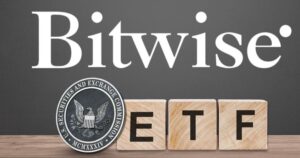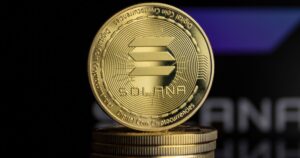In a significant move signaling the deepening convergence of traditional finance (TradFi) and digital assets, financial titans Goldman Sachs and BNY Mellon are set to offer institutional clients access to tokenized money market funds. This groundbreaking initiative promises to unlock unprecedented efficiencies, including real-time settlement and 24/7 market access, transforming how large institutions manage their liquidity.
Money market funds, a cornerstone of corporate and institutional cash management, typically invest in low-risk, short-term debt instruments. By tokenizing these funds, Goldman Sachs and BNY Mellon are essentially representing ownership shares on a blockchain, bringing the inherent advantages of distributed ledger technology to a traditionally less agile asset class.
According to a recent announcement, clients of BNY Mellon, the world’s largest custodian bank, will soon be able to directly invest in these funds, with ownership recorded on Goldman Sachs’ private blockchain. This collaboration underscores a strategic push to modernize capital markets and provide a more flexible, always-on infrastructure for institutional investors.
Laide Majiyagbe, global head of liquidity, financing, and collateral at BNY Mellon, emphasized the shift: “As the financial system transitions toward a more digital, real-time architecture, BNY is committed to enabling scalable and secure solutions that shape the future of finance.” The roster of participating industry heavyweights further highlights the mainstream appeal of this endeavor, including BlackRock, Fidelity Investments, and Federated Hermes, alongside the asset management divisions of both Goldman Sachs and BNY Mellon.
Money market fund tokens. Source: Copper.co
The Catalysts for Tokenization: Yield and Efficiency
This development arrives at a pivotal moment for the digital asset landscape, particularly following the recent passage of the GENIUS Act in the U.S., which established a regulatory framework for stablecoins. Crucially, the bill prohibits interest-bearing stablecoins, creating a significant incentive for institutions seeking yield on their idle cash. Tokenized money market funds offer a compelling alternative, providing yield typically backed by U.S. Treasurys or other low-risk instruments, but with the added benefits of blockchain technology.
The growth in tokenized short-term funds has been remarkable, surging to $5,7 mil millones in assets since 2021, as reported by Moody’s last month. This rapid expansion reflects a growing appetite among traditional asset managers, insurers, and brokerages to bridge fiat and digital markets, leveraging blockchain for fractional ownership and instantaneous settlement.
The Race to Digitize Capital Markets
The move by Goldman Sachs and BNY Mellon is part of a broader industry trend to bring capital markets onto blockchain rails. Earlier this month, Robinhood CEO Vlad Tenev unveiled plans for “Robinhood Chain,” an Ethereum-compatible Layer 2 solution on Arbitrum Orbit. This platform aims to enable direct blockchain-based trading of tokenized stock derivatives, effectively moving asset trading beyond traditional exchange hours.
Such initiatives directly challenge the concentrated liquidity and activity that have long given traditional financial exchanges, like the NYSE, their competitive edge. As more Wall Street firms explore and implement tokenization, the financial ecosystem is poised for a significant structural evolution, promising enhanced liquidity, transparency, and operational efficiency across the board.
The digital transformation of finance is no longer a distant concept; it’s actively reshaping the landscape, with leading institutions like Goldman Sachs and BNY Mellon at the forefront of this new era.






